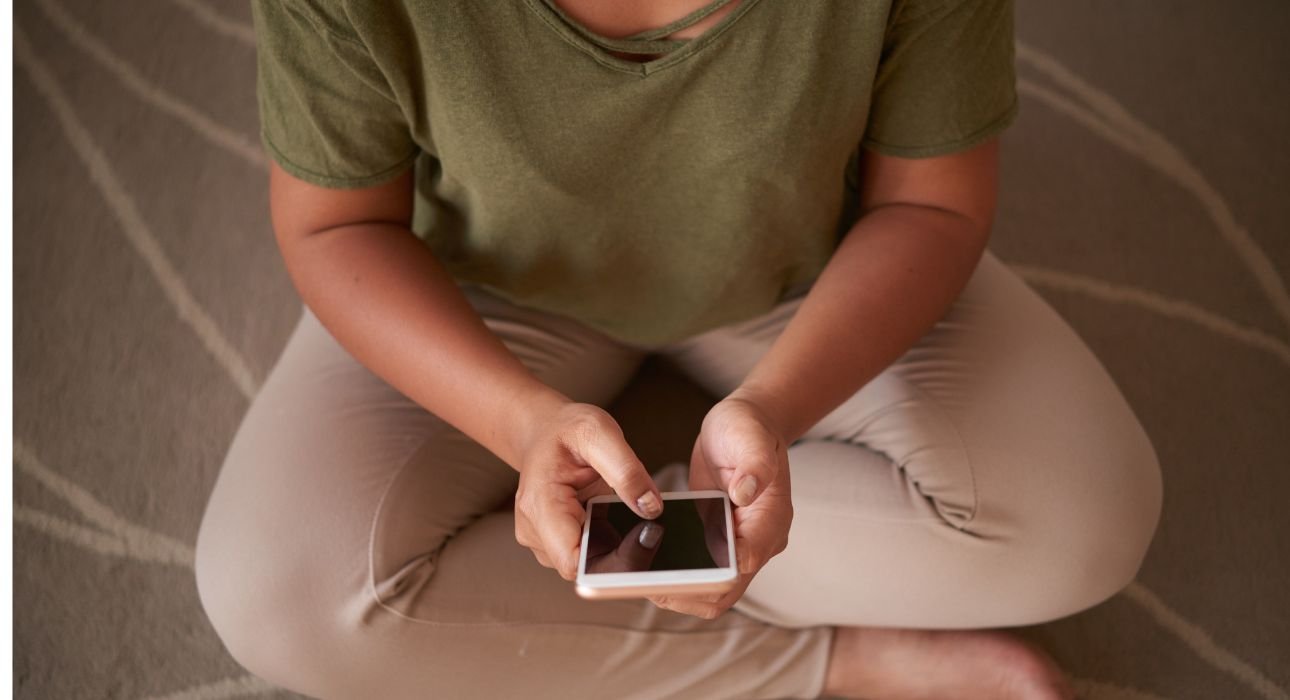Envision feeling overburdened and nervous after a long day of balancing work, family obligations, and personal stress. Then you open an app on your phone in with the expectation that it will offer the help that you require. But can your mental health really be improved by these digital tools?
The Rise of Mental Health Apps
In modern times many people turn to mental health apps for assistance, particularly since the COVID-19 pandemic. As anxiety and depression are on the rise globally, these digital technologies are becoming accessible and affordable solutions. There are already between 10,000 and 20,000 applications accessible to handle a variety of mental health conditions, ranging from mindfulness and mood tracking to crisis intervention and therapy replacement.
Public health agencies like the World Health Organization (WHO) and the National Institute of Mental Health (NIMH) have recognized these apps as an inexpensive way to close gaps in mental health care. As cell phones become more widely used, the possibility of having immediate access to mental health care is particularly enticing in places where there is a professional scarcity. Even if there is no denying the guarantee, the question still stands: do these apps live up to the hype?
Evaluating the Effectiveness of Mental Health Apps
The effectiveness of mental health applications has been the subject of conflicting research. According to studies, these resources can be useful in reducing moderate symptoms of sadness and anxiety, but they frequently fall short for more serious or complicated illnesses. Let’s examine some particular results:
Depression
Apps that use mindfulness, mood tracking, and cognitive behavioural therapy (CBT) have showed effectiveness for people with mild to moderate depression. When compared to control groups, these applications significantly lessen depressed symptoms, according to a meta-analysis of 18 randomized controlled trials (RCTs). However, without supplementary professional assistance, these measures can often prove insufficient for people suffering from serious depression.
Anxiety
In the same manner, smartphone apps that include mindfulness, CBT, and relaxation training have shown promise in lowering anxiety symptoms. Results are frequently better when these applications are used in conjunction with conventional therapies than when they are used alone. The potential of app-based therapies as an add-on to care was highlighted by the fact that in certain instances, substituting them for outpatient therapy sessions did not significantly reduce treatment efficacy.
Schizophrenia
The main goal of smartphone-based treatments for schizophrenia is to reduce behavioural symptoms. Apps can support treatment by offering psychosocial activities like cognitive training and illness management education, while antipsychotic drugs treat hallucinations and delusions. Although studies show good customer experiences along with elevated adherence rates, these tools cannot take the place of professional care.
Challenges Facing Mental Health Apps
The effectiveness of mental health apps is limited by a number of issues. User retention and engagement are among the primary problems. Due of a lack of consistent motivation, many users stop using these apps after just a few weeks. Features like gamification, real-time interactions, and reminders are required to keep users interested. These apps run the risk of becoming forgotten smartphone icons in the absence of such components. Furthermore, the market for mental health apps is not adequately regulated, which leads to notable variations in quality. Concerns regarding user data exploitation and privacy issues are raised by the fact that many apps do not follow evidence-based recommendations and do not provide robust privacy measures.
The lack of human interaction in mental health applications is another significant issue. Highlighting the compassion, validation, and similar experiences that human therapists offer, research emphasizes the critical role that therapeutic connections play in successful treatment. Despite their convenience, apps are unable to replace this human connection, which is essential for healing. Additionally, the majority of mental health applications target certain problems, although many psychiatric conditions overlap, which reduces the apps’ overall efficacy. These apps’ potential impact is diminished by their limited usefulness for those with multiple illnesses due to the absence of transdiagnostic techniques.
The Role of Belief and Placebo Effects
This is interesting to note that user perception frequently determines how well mental health apps perform. In research that contrasted the mindfulness software Headspace with a fake version, both groups claimed better results. This implies that using an app can promote good transformation regardless of its content. The psychological impact of treatment belief is emphasized by this placebo effect.
Complementing Traditional Therapy
Experts believe that using mental health applications in paired with conventional therapy yields the best results. The treatment process can be improved by features like skill reinforcement, mood monitoring, and symptom tracking. Even online therapy sessions are available through apps like BetterHelp and Talkspace, which pair patients with qualified providers. Apps can help with real-time symptom tracking, reinforce tactics acquired in sessions, and encourage users to exercise coping mechanisms when used in conjunction with in-person therapy. Additionally, they allow patients to record feelings and triggers for their therapist to address. Overall results can be improved by using these techniques to help patients feel more empowered and involved in their treatment process.
How to Choose the Right Mental Health App
With plenty of mental health applications available, it becomes even more challenging to discover the one right for you suiting your requirements. Evidence-based information, such as applications based on scientifically proven techniques like CBT or mindfulness, is important to take into account.
Applications with exaggerated claims should be avoided. To promote long-term use, user-friendly design is crucial, with compelling features and intuitive interfaces; simplicity is even more crucial for those with cognitive impairments. Security and privacy are crucial; make sure the app complies with data protection regulations and has an open privacy statement. Last but not least, the greatest apps let users customize content, goals, and notifications to suit their requirements.
Recommendations for Specific Needs
Multiple types of research-based apps are suggested by experts for mental health support: Headspace for mindfulness, COVID Coach for stress, CBT Thought Diary for mood tracking, Worry Watch for anxiety, CBT-i Coach for insomnia, and PTSD Coach for PTSD. These apps’ usability and scientifically backed methods are intended to improve mental health.
When Apps Aren’t Enough
Apps for mental health can be useful resources, but they cannot replace expert care. People with severe symptoms, such as profound sadness, self-harm thoughts, or ongoing anxiety, need individualized care from qualified physicians. Additionally, apps can’t handle severe mental health disorders or offer a thorough diagnosis. In these situations, depending just on digital technologies may cause important interventions to be delayed. Effective therapy needs the realization of when to get professional assistance.
The Future of Mental Health Apps
Apps for mental health have a promising future because of technological improvements. More individualized interventions, such as real-time mood assessments and customized coping mechanisms, are possibly made attainable by artificial intelligence (AI). Chatbots with AI capabilities could additionally be capable of offering people emergency assistance right when they need it. The use of transdiagnostic techniques, in which apps address numerous illnesses simultaneously, is another intriguing trend. By addressing the complicated, overlapping nature of mental health disorders, this method could provide a more holistic solution and enhance participation and treatment success.
Future apps could incorporate professional care, allowing professionals and patients to communicate easily. This integration might improve monitoring, which would facilitate progress tracking and increase treatment plan adherence. Therapy might become more ongoing and accessible with more efficient communication. Stricter rules will probably be put in place as the mental health app market expands to guarantee safer and better treatment. These rules will include data security and app development, guaranteeing that users obtain reliable assistance while their private data is safeguarded. When combined, these developments will improve the efficiency, security, and personalization of mental health apps for users.
Conclusion
With its ease of use and accessibility in treating mild to moderate symptoms, mental health applications have established a place for themselves in the current mental health market. They can offer helpful support and serve as a link to professional assistance, but they cannot take the place of human therapists’ specialized care. Users can make significant progress toward improved mental health by selecting the appropriate app, being aware of its limits, and integrating it into a larger care plan. These digital tools can be a valuable friend on the path to wellbeing, but they are not the ultimate solution.
References +
Chandrashekar, P. (2018). Do mental health mobile apps work: evidence and recommendations for designing high-efficacy mental health mobile apps. mHealth, 4, 6. https://doi.org/10.21037/mhealth.2018.03.02
Mph, S. C. M. (2022, February 7). Is a mobile app as good as a therapist? Harvard Health. https://www.health.harvard.edu/blog/is-a-mobile-app-as-good-as-a-therapist-202202072683
Dorwart, L. (2024, September 13). The best mental health apps, tried and tested. Verywell Mind. https://www.verywellmind.com/best-mental-health-apps-4692902
Kelly, M. (2024, June 5). Therapy apps are a phenomenon. Or maybe a fad. Harvard Public Health Magazine. https://harvardpublichealth.org/mental-health/therapy-apps-are-a-phenomenon-or-maybe-a-fad/
FAQs
1. I’m overwhelmed by daily stress. Can an app help?
Yes, apps like Headspace or Calm can provide mindfulness exercises and relaxation techniques to help manage daily stress and improve mental clarity.
2. Can I use Mental Health apps if I’m already in therapy?
Absolutely. Apps like CBT Thought Diary or Worry Watch can complement therapy by tracking your mood and reinforcing strategies from your sessions.
3. Are MH apps safe for my personal data?
Many apps lack strong privacy protections. Choose apps with transparent privacy policies and compliance with data security standards to safeguard sensitive information.
4. What should I do if my symptoms worsen despite using an app?
If symptoms persist or worsen, seek professional help. Apps are tools but cannot replace a diagnosis or personalized treatment from a qualified therapist.
5. How do I stay motivated to use a MH app consistently?
Look for apps with gamification features, reminders, and engaging content to maintain interest and integrate their use into your daily routine.













Leave feedback about this